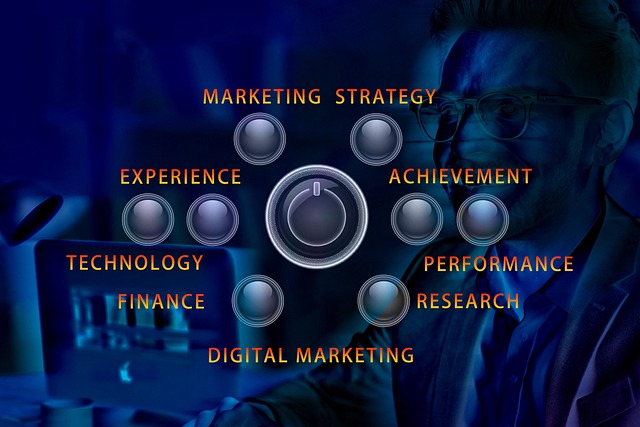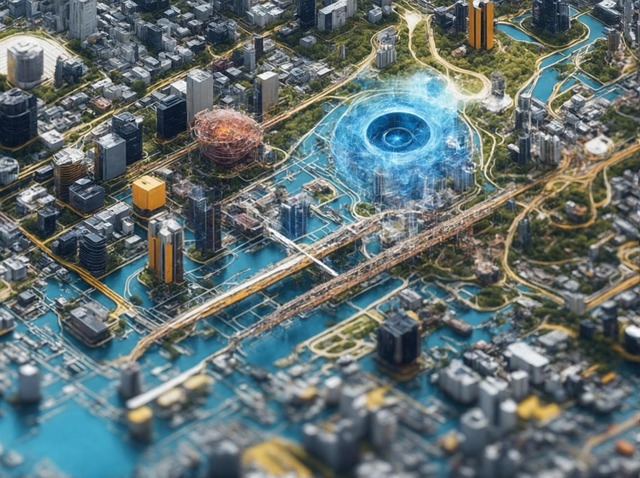AI is transforming commercial real estate by enabling strategic acquisition and integration of smart building technologies for enhanced operational efficiency. This involves AI-driven data analysis, predictive maintenance, energy optimization, and tenant needs management, reducing costs and promoting sustainability. The process includes identifying cutting-edge tech startups, aligning solutions for seamless integration, and leveraging AI, IoT, and analytics for scenario prediction and response, revolutionizing both ownership and occupancy experiences.
The integration of Artificial Intelligence (AI) into commercial real estate is transforming the way buildings function and are managed. “Unlocking Potential: AI’s Role in Commercial Real Estate” explores how AI is revolutionizing smart building systems, enhancing efficiency and optimizing spaces.
“Strategic Acquisition: Targeting Smart Building Technologies” delves into identifying key technologies to acquire for a comprehensive AI-driven ecosystem.
“Integration Process: Building a Futuristic Ecosystem” provides insights into the steps required to seamlessly integrate these innovations. Through strategic acquisition target identification, this article uncovers the potential of AI in shaping the future of real estate.
- Unlocking Potential: AI's Role in Commercial Real Estate
- Strategic Acquisition: Targeting Smart Building Technologies
- Integration Process: Building a Futuristic Ecosystem
Unlocking Potential: AI's Role in Commercial Real Estate

In the dynamic realm of commercial real estate, Artificial Intelligence (AI) is unlocking unprecedented potential, transforming how buildings are managed and optimized. By seamlessly integrating AI into smart building systems, developers and investors can harness advanced analytics to drive strategic acquisition target identification and enhance overall property performance. This technology revolutionizes traditional practices by offering insightful data-driven decisions, enabling efficient resource allocation, and anticipating tenant needs.
AI’s role extends beyond initial acquisition; it also facilitates ongoing operational efficiency. Through machine learning algorithms, these systems can predict equipment failures, optimize energy consumption, and adapt to changing market dynamics. This proactive approach not only reduces costs but also contributes to sustainable building practices, making AI a strategic acquisition target identification method that promises to redefine the future of commercial real estate.
Strategic Acquisition: Targeting Smart Building Technologies

In today’s digital era, commercial real estate (CRE) is undergoing a metamorphosis with the strategic acquisition and targeted integration of smart building technologies. AI plays a pivotal role in this transformation by enabling property managers and owners to enhance operational efficiency, optimize resource utilization, and improve tenant experiences. By identifying and acquiring cutting-edge solutions, such as advanced IoT sensors, predictive analytics platforms, and automated systems for energy management and security, CRE professionals can unlock significant value.
This strategic acquisition process involves a careful dance of evaluating market trends, understanding tenant needs, and selecting technologies that seamlessly integrate with existing infrastructure. Targeting specific areas like energy optimization, smart access control, or comprehensive facility management software allows for a phased implementation approach—a crucial element in ensuring successful system integration without disrupting day-to-day operations.
Integration Process: Building a Futuristic Ecosystem

The integration process of AI into commercial real estate begins with strategic acquisition target identification, where cutting-edge technologies and innovative startups are meticulously selected to form the backbone of a smart building ecosystem. This involves a careful balance between identifying potential partners and ensuring their solutions complement each other, aligning perfectly with the desired future state of the property. Once identified, these AI components must seamlessly merge, creating an integrated system that optimizes space utilization, enhances tenant experience, and improves operational efficiency.
This integration is not merely about technology; it’s about fostering a futuristic ecosystem where data-driven insights guide decision-making at every turn. By combining AI with IoT (Internet of Things) devices, building management systems, and advanced analytics, the integrated platform can predict and respond to various scenarios, from optimizing energy consumption to enhancing security measures. This holistic approach promises a transformative experience for both property owners and occupants, setting the stage for a new era in commercial real estate.
The integration of AI into commercial real estate through smart building system acquisition and targeted identification is a transformative strategy. By seamlessly integrating cutting-edge technologies, developers are unlocking new levels of efficiency and enhancing the overall tenant experience. As AI continues to evolve, strategic acquisition and thoughtful integration will be key to staying ahead in the market, driving innovation, and optimizing real estate investments. This futuristic ecosystem not only improves operational capabilities but also positions commercial properties as desirable, modern spaces.
